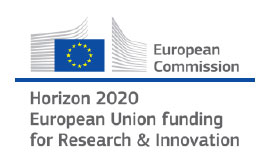Extreme wildfire events beyond any control are becoming a major environmental economic and social threat across the world.
FIRE-RES will develop an integrated fire management strategy to efficiently and effectively address extreme wildfire events in Europe where geoinformation and Earth observation data will play a fundamental role in making territories resistant to fire.

Appearance of an extreme wildfire
The frequency of these fires requires accelerating the change towards the implementation of a more comprehensive management that includes environmental, climatic, health and safety, cultural and socioeconomic aspects, with special interest in the development and application of new technologies and in the change of forest management practices.
The objectives of the FIRE-RES project is to provide the capacity to avoid collapse in the face of extreme wildfires by identifying, developing and deploying innovative means that promote the integration of landscapes, communities and new technological applications.

Approximation of the action protocol for extreme wildfires and representative example of the innovation actions to be developed in the FIRE-RES project.
The ambition and scope of the FIRE-RES project is reflected in the number of partners involved (34), both private and public institutions, from the following countries: Spain (Catalonia, Galicia, Canary Islands and other communities), Portugal, France, Italy, Finland, Greece, the Netherlands, Belgium, Luxembourg, Norway and Chile.
FIRE-RES at a glance
- Title: “Preventing and fighting extreme wildfires with the Integration and demonstration of innovative means. FIRE-RES”.
- Budget: 21.543.565,37 euros.
- Funding: 19.896.326,62 euros (92%).
- ICGC budget: 569.150 euros.
- Funding for ICGC: 398.405 euros (70%).
- Start date: 01/12/2021.
- End date: 01/12/2025 (48 months).
- Consortium: 32 European partners and 2 American (Chile).
- Coordination: Consorci Centre de Ciència i Tecnologia Forestal de Catalunya (CTFC).
- Web: https://fire-res.eu.
- Program: Funded by Horizon 2020 program, EU.
Expected results
- Identify scenarios of future fires and definition of impacts on ecosystems and socioeconomic systems.
- Define landscape and emergency management strategies adapted to extreme wildfires and consistent with landscapes, improving landscape planning and management, from now to the future.
- Propose improvements in tools to identify potential scenarios, tests of new early detection technologies and measures to detect which scenario will be achieved.
- Improved risks awareness and culture in communities.
ICGC tasks and technical actions
Broadly speaking, the ICGC will lead the tasks of evaluating and updating the management and data acquisition systems, as well as the development of innovative methodologies for the evaluation of the fuel structure and the advanced characterization of the vegetation based on observational data from the Earth and artificial intelligence on forest ecosystems.
ICGC will participate in five workpackages (WP) with different tasks.
- WP2: The extreme wildfire event. Adaptive territorial management.
- Task 2.1: Assessment and upgrade of data acquisition and management systems, fire simulators, vegetation dynamics models and management planning techniques for resistant and resilient landscapes.
- Task leader: ICGC.
- ICGc leads Subtask 2.1.2. Innovative methodologies for fuel structure assessment.
- Task 2.2: Innovative guidelines to design the wildland urban interface (WUI).
- WP5: Advanced technologies, equipment and decision support systems.
- Task 5.1: Development of an integrative system to support EWE decision-making.
- Task 5.2: Acquisition and integration of data from internal and external sources.
- ICGc leads Subtask 5.2.1. Advanced vegetation characterization based on Earth Observation (EO) data fusion and Artificial Intelligence (AI) over forestland ecosystems.
- WP7: Communication, Dissemination and Engagement with Stakeholders.
- Final meeting assistance.
- WP8: Coordination of Living Labs and Innovation Action Implementation.
- Assemblage of the studies carried out in Catalonia and extrapolation from the rest of Europe.
- WP9: Coordination and management of the project including the Living Labs.
- Collaboration in the dissemination of project results.
Funded by:
Project funded by UE Horizon 2020 (Call: H2020-LC-GD-2020 Building a low-carbon, climate resilient future: Research and innovation in support of the European Green Deal - Topic: LC-GD-1-1-2020)

 Contact
Contact










